Isetan Mitsukoshi Ltd., in collaboration with Kyoto Prefecture, is promoting Kyoto's traditional industries and techniques both domestically and internationally through three stores in the Tokyo metropolitan area through the "Kyoto Prefecture x Isetan Mitsukoshi Manufacturing Project." This project, launched in 2016 as "Kyoto Manufacturing," marks its fifth year.
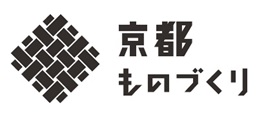
"Kyoto Manufacturing" connects customers with producers of Japan's most traditional craftsmanship, with department store buyers acting as the hub. By leveraging their sales floor production capabilities, Isetan Mitsukoshi's buyers develop products tailored to market needs and leverage their sales channels to expand their offerings, the project connects customers with producers of Japan's most traditional craftsmanship. Combining the skills handed down in Kyoto, a city rich in history and culture, with the insights of Isetan Mitsukoshi's buyers, we will introduce new forms of tradition, created through handcraftsmanship and modern sensibilities.
Objective of the Initiative
Aiming to realize the "Isetan Mitsukoshi Group Connecting People and Times," one of our key sustainability initiatives is "Connecting People and Communities." We have long been committed to reconstructing Japan's world-renowned traditions, culture, and aesthetic sense and promoting them as new value. To overcome the shrinking market for traditional industries due to lifestyle changes, Kyoto Prefecture aims to expand customer contact points for traditional industries and create a sustainable market and demand.
Specifically, our buyers will visit manufacturing sites, analyze the technical strengths of each business, consider the business's perspective, and provide matching and support to enable the business to continue its activities independently. We also leverage our buyers' networks to propose ways to enhance each business's strengths through brand matching and offer advice and know-how for product development.
Supporting local businesses through e-commerce
We aim to create long-term manufacturing relationships with the local community by setting up a permanent online site in 2020 and providing a continuous sales channel.
■Introducing Kyoto's traditions, techniques, and the thoughts of business owners on the "Kyoto Manufacturing" special site
https://www.mistore.jp/shopping/feature/shops_f2/st_kyoto_lp_sp.html
■Also featured on "MOO:D MARK by ISETAN," which proposes new ways of giving gifts through "social gifting"
https://moodmark.mistore.jp/?utm_source=pr&utm_medium=kyotorelease&utm_campaign=20210201
Isetan Shinjuku Store, Main Building 1st Floor, Women's Goods Promotion: February 17th - March 2nd
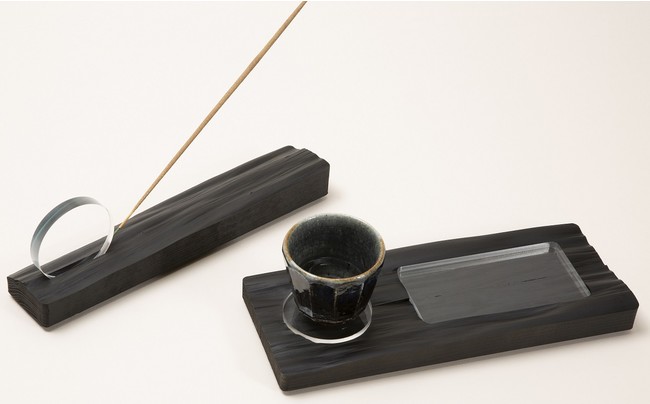
<Chugen>
With over 130 years in Kyoto, Chugen Co., Ltd. has a dazzling history, including being viewed by His Majesty the Emperor and the Crown Prince and receiving the Minister of Agriculture, Forestry and Fisheries Award, and is a rare entity that has inherited Japan's world-renowned wood culture. This time, in order to explore the role of Kitayama cedar in the lifestyles of a new era, a collaboration has been realized with the designers of. is a brand based on Masuki Resin Co., Ltd., a group of resin processing professionals, and is constantly creating Japanese products with a fresh sensibility, using the skills of its designers and craftsmen. They are also permanently displayed at ISETAN Seed on the 1st floor of the main building of Isetan Shinjuku.
<Hineno Katsujiro Shoten>
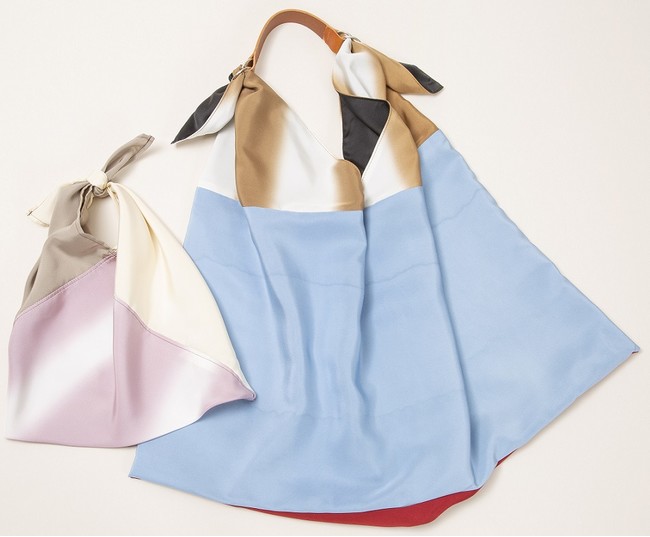
While there are many different industries related to Japanese clothing, Hineno Katsujiro Shoten is engaged in a job called "dyeing complete". Founded in 1952 by the founder, Hineno Jiro, Hineno Katsujiro Shoten's strength lies in the fact that the know-how passed down since then has been utilized for three generations. Hineno Takashi, the third-generation owner, plays a major role in connecting the traditions of Kyoto dyeing to the future. This time, they have produced an eco-bag, a one-mile bag, which has become an indispensable part of everyday life. They used sample and test cloth of Kyoto Yuzen silk, which is usually produced when dyeing kimonos. This is a one-of-a-kind bag that makes use of artisanal techniques and allows you to enjoy the combination of various colors and patterns and beautiful silk fabrics.年始には 60年年以上。 English:
Nihonbashi Mitsukoshi Main Store, Main Building 5th Floor, Space #5: February 3rd - 9th
Shinroku Kiln>
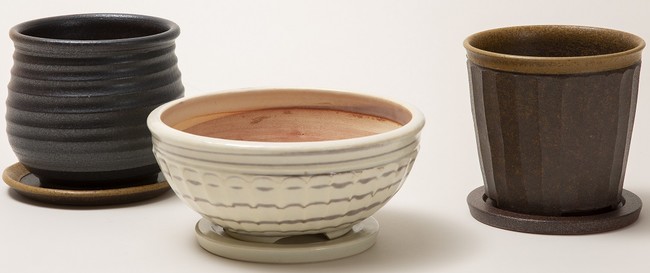
< ... This time, we have a lineup of flowerpots that make use of the "hole drilling" technique used on the spouts of teapots. They are decorated with expressive designs using authentic glazes. As people spend more time at home, they will also contribute to enhancing the botanical lifestyle that is becoming a trend.
*Watch the video here: https://youtu.be/Uaob0S2d50M
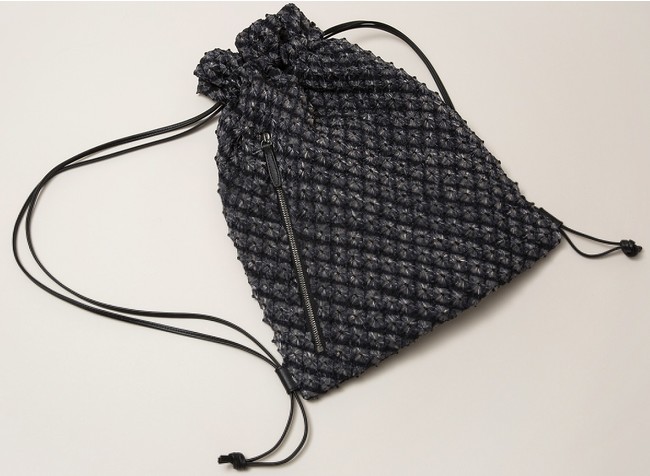
<Katayama Bunzaburo Shoten>
"Wearable art" is a technique known primarily for its use in Japanese clothing, and is a form of tie-dyeing that is representative of Kyoto. BUNZABURO is a brand that expresses traditional techniques with a fresh approach. Founded in 1915 by Katayama Bunzaburo Shoten, a long-established Kyoto store, BUNZABURO is currently run by third-generation owner Kazuo Katayama, who has contributed greatly to its development. Their signature tie-dyeing technique is called "by-shibori." The tied-in sections remain undyed, remaining the same color as the fabric. The black dye and the textured shibori create an artistic look. These knapsacks feature zip pockets and linings for added strength, making them highly versatile. They're perfect for everyday wear, not just with traditional Japanese clothing. Watch the video here: https://youtu.be/n5Djf3DSElQ Ginza Stage, 5th floor, Ginza Mitsukoshi Main Building: March 3rd (Wed) - 9th (Tue) Kyoto Shibori Bikyo Established in 1937. Kyoto Shibomikyo, led by third-generation owner Teruichi Matsuoka, has continued to produce tie-dye products in Kyoto for three generations, changing its name with each generation. In 2016, the company launched KIZOMÉ, a brand that incorporates tie-dye techniques into Western clothing, and has made a major contribution to its development.
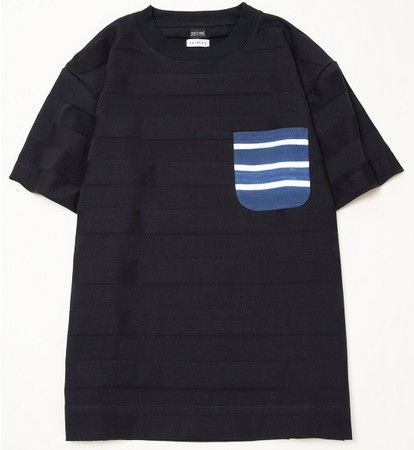
Inspired by the regimental stripes of Fairfax, a representative traditional brand, we have created a T-shirt with a pocket. This striped T-shirt features Fairfax's classic regimental stripes, expressed using Kyoto Shibori Bikyo's board-tied shibori technique, and features a lynx jacquard body. It's a piece that brings the traditions of Kyoto closer to you in a casual way.
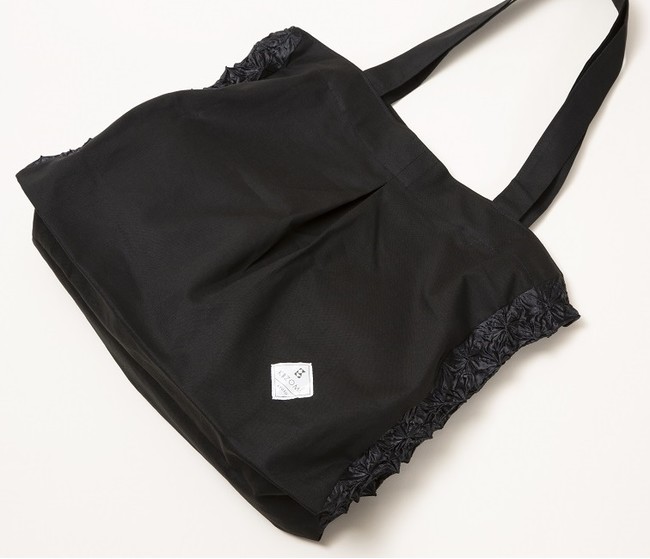
This shopping bag combines fabric that has been treated with "kasamaki shibori," a traditional Kyoto Kanoko shibori technique, with a thin fabric. It can be folded and stored compactly in the inner pocket. The shibori stretches when you put something inside, but returns to its original shape when you remove your items.
Online Store MOO:D MARK by ISETAN: From Monday, February 1st
<Tsujitoku>
Since its founding in 1910, Tsujitoku has been dealing in specialty paper such as gold and silver thread paper. "Tsuji" comes from Tsuji Shoten, and "Toku" comes from the character in the name of the founder, Tokujiro. In 2007, the company launched a kaishi department and began selling products under the brand name Tsujitoku. Kaishi have been used since before the Heian period. In the hope of helping to pass on the paper culture that the Japanese have nurtured to the next generation, the company is currently developing products while considering ways to make use of them in everyday life.
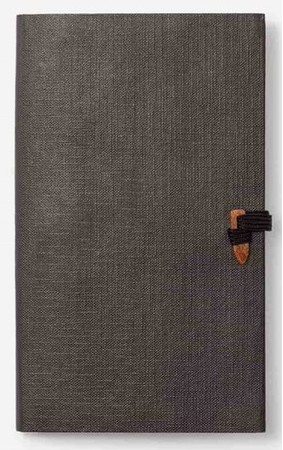
Carrying a mask around has become a part of everyday life, so the way you store your mask should also be elegant. Tsujitoku of Kaishi proposes a mask case that is uniquely Kyoto.
*This product will be on sale from February 10th.

<Yumemiya>
We produce cute Japanese goods and accessories featuring Japanese patterns, originating from Kyoto, as well as crepe paper crafts. Since our founding, we have continued to create original goods using Japanese materials, calling them Japanese goods rather than Japanese accessories.
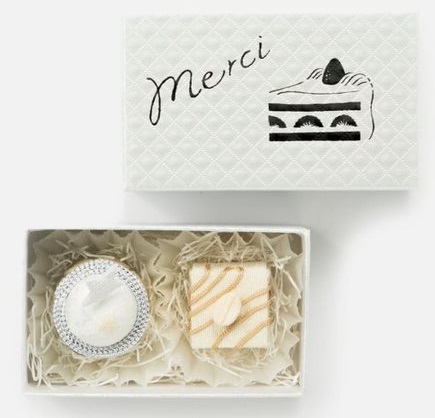
An adorable sweet treat with an elegant white base and a sweet fragrance. A gift with a new fragrance that incorporates the techniques and crepe paper processing cultivated in Uji, Kyoto.
*This product will be on sale from February 10th.
List of "Kyoto Manufacturing" Businesses
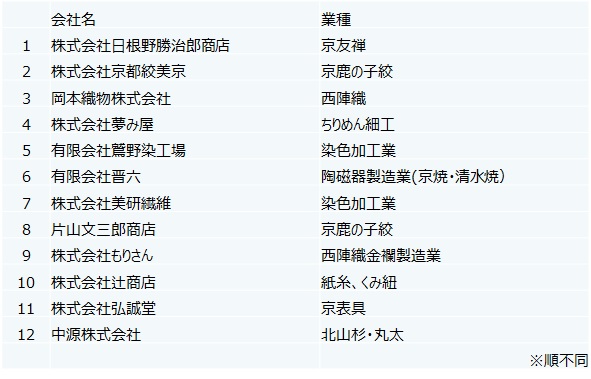
Click here for company press release details

"Kyoto Manufacturing" connects customers with producers of Japan's most traditional craftsmanship, with department store buyers acting as the hub. By leveraging their sales floor production capabilities, Isetan Mitsukoshi's buyers develop products tailored to market needs and leverage their sales channels to expand their offerings, the project connects customers with producers of Japan's most traditional craftsmanship. Combining the skills handed down in Kyoto, a city rich in history and culture, with the insights of Isetan Mitsukoshi's buyers, we will introduce new forms of tradition, created through handcraftsmanship and modern sensibilities.
Objective of the Initiative
Aiming to realize the "Isetan Mitsukoshi Group Connecting People and Times," one of our key sustainability initiatives is "Connecting People and Communities." We have long been committed to reconstructing Japan's world-renowned traditions, culture, and aesthetic sense and promoting them as new value. To overcome the shrinking market for traditional industries due to lifestyle changes, Kyoto Prefecture aims to expand customer contact points for traditional industries and create a sustainable market and demand.
Specifically, our buyers will visit manufacturing sites, analyze the technical strengths of each business, consider the business's perspective, and provide matching and support to enable the business to continue its activities independently. We also leverage our buyers' networks to propose ways to enhance each business's strengths through brand matching and offer advice and know-how for product development.
Supporting local businesses through e-commerce
We aim to create long-term manufacturing relationships with the local community by setting up a permanent online site in 2020 and providing a continuous sales channel.
■Introducing Kyoto's traditions, techniques, and the thoughts of business owners on the "Kyoto Manufacturing" special site
https://www.mistore.jp/shopping/feature/shops_f2/st_kyoto_lp_sp.html
■Also featured on "MOO:D MARK by ISETAN," which proposes new ways of giving gifts through "social gifting"
https://moodmark.mistore.jp/?utm_source=pr&utm_medium=kyotorelease&utm_campaign=20210201
Isetan Shinjuku Store, Main Building 1st Floor, Women's Goods Promotion: February 17th - March 2nd

<Chugen>
With over 130 years in Kyoto, Chugen Co., Ltd. has a dazzling history, including being viewed by His Majesty the Emperor and the Crown Prince and receiving the Minister of Agriculture, Forestry and Fisheries Award, and is a rare entity that has inherited Japan's world-renowned wood culture. This time, in order to explore the role of Kitayama cedar in the lifestyles of a new era, a collaboration has been realized with the designers of
<Hineno Katsujiro Shoten>

While there are many different industries related to Japanese clothing, Hineno Katsujiro Shoten is engaged in a job called "dyeing complete". Founded in 1952 by the founder, Hineno Jiro, Hineno Katsujiro Shoten's strength lies in the fact that the know-how passed down since then has been utilized for three generations. Hineno Takashi, the third-generation owner, plays a major role in connecting the traditions of Kyoto dyeing to the future. This time, they have produced an eco-bag, a one-mile bag, which has become an indispensable part of everyday life. They used sample and test cloth of Kyoto Yuzen silk, which is usually produced when dyeing kimonos. This is a one-of-a-kind bag that makes use of artisanal techniques and allows you to enjoy the combination of various colors and patterns and beautiful silk fabrics.年始には 60年年以上。 English:
Nihonbashi Mitsukoshi Main Store, Main Building 5th Floor, Space #5: February 3rd - 9th
Shinroku Kiln>

< ... This time, we have a lineup of flowerpots that make use of the "hole drilling" technique used on the spouts of teapots. They are decorated with expressive designs using authentic glazes. As people spend more time at home, they will also contribute to enhancing the botanical lifestyle that is becoming a trend.
*Watch the video here: https://youtu.be/Uaob0S2d50M

<Katayama Bunzaburo Shoten>
"Wearable art" is a technique known primarily for its use in Japanese clothing, and is a form of tie-dyeing that is representative of Kyoto. BUNZABURO is a brand that expresses traditional techniques with a fresh approach. Founded in 1915 by Katayama Bunzaburo Shoten, a long-established Kyoto store, BUNZABURO is currently run by third-generation owner Kazuo Katayama, who has contributed greatly to its development. Their signature tie-dyeing technique is called "by-shibori." The tied-in sections remain undyed, remaining the same color as the fabric. The black dye and the textured shibori create an artistic look. These knapsacks feature zip pockets and linings for added strength, making them highly versatile. They're perfect for everyday wear, not just with traditional Japanese clothing. Watch the video here: https://youtu.be/n5Djf3DSElQ Ginza Stage, 5th floor, Ginza Mitsukoshi Main Building: March 3rd (Wed) - 9th (Tue) Kyoto Shibori Bikyo Established in 1937. Kyoto Shibomikyo, led by third-generation owner Teruichi Matsuoka, has continued to produce tie-dye products in Kyoto for three generations, changing its name with each generation. In 2016, the company launched KIZOMÉ, a brand that incorporates tie-dye techniques into Western clothing, and has made a major contribution to its development.

Inspired by the regimental stripes of Fairfax, a representative traditional brand, we have created a T-shirt with a pocket. This striped T-shirt features Fairfax's classic regimental stripes, expressed using Kyoto Shibori Bikyo's board-tied shibori technique, and features a lynx jacquard body. It's a piece that brings the traditions of Kyoto closer to you in a casual way.

This shopping bag combines fabric that has been treated with "kasamaki shibori," a traditional Kyoto Kanoko shibori technique, with a thin fabric. It can be folded and stored compactly in the inner pocket. The shibori stretches when you put something inside, but returns to its original shape when you remove your items.
Online Store MOO:D MARK by ISETAN: From Monday, February 1st
<Tsujitoku>
Since its founding in 1910, Tsujitoku has been dealing in specialty paper such as gold and silver thread paper. "Tsuji" comes from Tsuji Shoten, and "Toku" comes from the character in the name of the founder, Tokujiro. In 2007, the company launched a kaishi department and began selling products under the brand name Tsujitoku. Kaishi have been used since before the Heian period. In the hope of helping to pass on the paper culture that the Japanese have nurtured to the next generation, the company is currently developing products while considering ways to make use of them in everyday life.

Carrying a mask around has become a part of everyday life, so the way you store your mask should also be elegant. Tsujitoku of Kaishi proposes a mask case that is uniquely Kyoto.
*This product will be on sale from February 10th.

<Yumemiya>
We produce cute Japanese goods and accessories featuring Japanese patterns, originating from Kyoto, as well as crepe paper crafts. Since our founding, we have continued to create original goods using Japanese materials, calling them Japanese goods rather than Japanese accessories.

An adorable sweet treat with an elegant white base and a sweet fragrance. A gift with a new fragrance that incorporates the techniques and crepe paper processing cultivated in Uji, Kyoto.
*This product will be on sale from February 10th.
List of "Kyoto Manufacturing" Businesses

Click here for company press release details
The press releases featured in this article have been provided by PR TIMES, Inc. and are reproduced verbatim. FASHION HEADLINE does not endorse the products or services featured, nor does it guarantee the content of the press releases. For inquiries regarding the content of this article, please contact PR TIMES Inc. directly (https://prtimes.jp/).


![Our Fashion Story [vol.28_ DIOR × Contemporary]](https://wrqc9vvfhu8e.global.ssl.fastly.net/api/image/crop/533x712/images/upload/2025/11/1d7732ea5c65c54c096829dba8830b9e.jpg)












